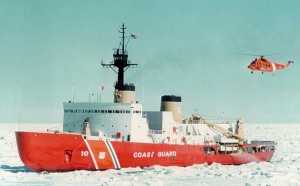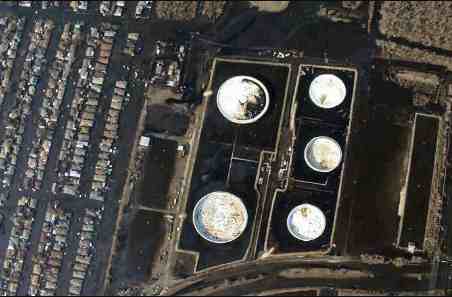
Washington, D.C. – Two bills cosponsored by Alaska Congressman Don Young were considered in the House Transportation and Infrastructure Coast Guard Subcommittee today – one to update the Oil Pollution Act (OPA) of 1990 as it relates to foreign spills, another to establish a funding process for the alteration, renovation, lease or charter of a U.S. built icebreaker.
Foreign Spill Protection Act of 2015:
H.R. 1684, the Foreign Spill Protection Act of 2015, would ensure that the responsible party, regardless of origin, pays for ALL American cleanup costs associated with an oil spill. Under current law, spills occurring in U.S. waters must be paid for in full by the responsible party. However, foreign oil spills reaching U.S. waters are paid for through the Oil Liability Trust Fund, which covers $150 million for clean up and up to $850 million for claims.
“Following the Exxon Valdez oil spill, which revealed the lack of federal funding available at the time to respond to oil spills, Congress passed the Oil Protection Act to develop the laws currently governing damage payments, oil spill prevention and response,” said Congressman Don Young. “I was proud to serve a key role in advancing that legislation and stand ready to push commonsense reforms to hold foreign entities accountable for their actions in our waters. This legislation is increasingly important as maritime activity near Alaska increases. For example, if a vessel transporting oil in Russian waters suffers a spill, ocean currents may very well bring that oil into Alaska’s waters and shores. H.R. 1684 would force the responsible party to pay for the costs associated with clean up.”
Under this bill, operators responsible for a spill reaching U.S. waters would pay for all costs associated with cleanup. Those refusing, or denying guilt, would face significant civil penalties imposed by the U.S. Attorney General in the appropriate district court.
National Icebreaker Fund Act of 2015:
The National Icebreaker Fund Act of 2015 would establish an alternative funding process for building a new icebreaker, renovating an existing icebreaker, or leasing private icebreakers. The National Icebreaker Fund would be eligible for funds from a variety of sources, including Congressional appropriations, receipts from selling an ice breaker, fund transfers from other agencies, and non-federal contributions.
“During my time in Congress and on the House Transportation of Infrastructure Committee, I have seen firsthand the hurdles we face in trying to expand our icebreaker fleet,” said Congressman Don Young. “Every year, our ice breaking needs grow, as does the cost to build a new icebreaker or renovate an existing one. Under this proposal, the National Icebreaker Fund would allow the Coast Guard to use funds to renovate its existing polar icebreakers, acquire a new one, or lease such a vessel from a private owner. The benefits of this approach would be that Congress could build the Fund up over years rather than trying to appropriate the significant overall costs of a new icebreaker in a single year.”






